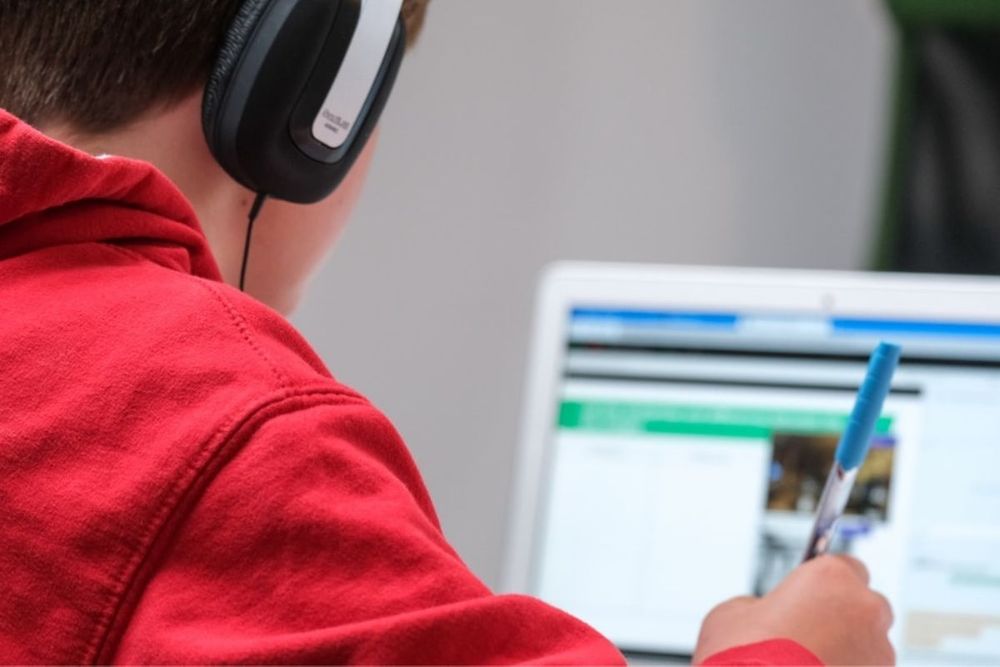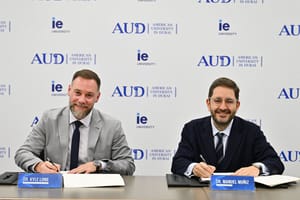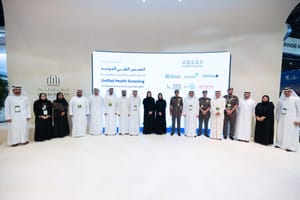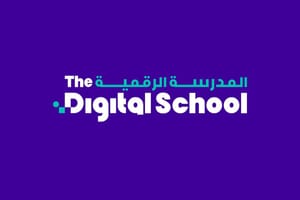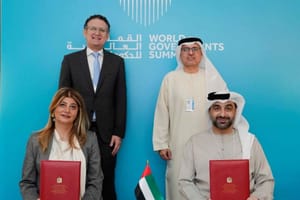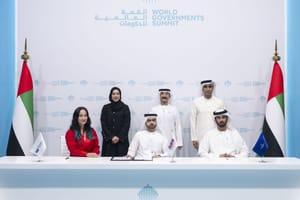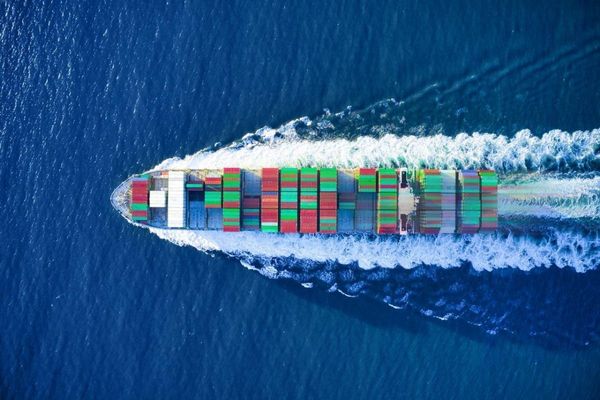The Digital School, the first integrated Arabic digital school and one of the Mohammed Bin Rashid Al Maktoum Global Initiatives (MBRGI), has signed a Memorandum of Understanding (MoU) with the Ministry of Education in the Iraqi Kurdistan Regional Government to implement digital school programs and enhance cooperation in digital learning in the region.
The MoU was signed by Omar bin Sultan Al Olama, Minister of State for Artificial Intelligence, Digital Economy, and Teleworking Applications, and Chairman of the Board of Directors of the Digital School, and Alan Hama Saeed Saleh, Minister of Education in the Iraqi Kurdistan Regional Government, in the presence of Shailan Khalil Junaid, Director-General of Educational Planning at the Ministry of Education in the region; Dr. Waleed Al Ali, Secretary-General of the Digital School; Obaid Al Baloushi, Director of Projects and International Development at the Emirates Red Crescent; and Farah Al Azab, Program Development Manager at MBRGI.
This partnership provides digital education services of the Digital School to students in the Iraqi Kurdistan region in two phases. The first includes providing digital educational tools and materials in Arabic for students in 50 schools, while the second phase includes cooperation in developing a version of the Digital School materials in Kurdish.
Through the Digital Teacher Training Program, the Digital School works to build flexible and advanced learning communities by focusing on building and developing the capabilities of teachers and educational leaders in the areas of digital education. This is undertaken according to quality training courses developed in cooperation with Arizona State University and contributes to empowering educational staff with digital education skills so they can provide outstanding educational content to students, based on the "training the trainers" principle.
He said that the Digital School initiative represents a message of hope, one aimed at strengthening global educational alliances that develop students' skills to build a better future for the region and the world. He added that the signing of the MoU with the Ministry of Education in the Iraqi Kurdistan Region is an extension of the initiative’s global success and the constructive cooperation with various parties at the national, regional and international levels to employ advanced technology to provide one million students with advanced and scientific knowledge over the next five years, and to adopt innovative practices and smart technologies to find innovative solutions that serve societies around the world.
Al Olama added that the world is going through exceptional circumstances as a result of the COVID-19 pandemic. Many of the current challenges underline the need to develop a sustainable global education system that addresses the future and adopts the latest technological means to provide an experience that students from all over the world can access and benefit from, especially those who are most in need for digital education.
For his part, Alan Hama Saeed said,
"The Ministry of Education in the Kurdistan Region in Iraq was keen to participate in the initiative of His Highness Sheikh Mohammed bin Rashid Al Maktoum in order to enhance joint cooperation, especially in education sector."
"The Digital School is a pioneering project in the region, especially during the pandemic when the concept of school began to rely more on digital education and remote learning. I hope that this project will achieve its objectives for a more comprehensive and effective education experience, and I wish the UAE’s government and its people more success and prosperity."
The MoU that was signed between the Digital School and the Ministry of Education in the Kurdistan Region of Iraq stipulates the exchange of experiences and best practices, and invites the ministry to join the Alliance for the Future of Digital Education, which is supervised by the Digital School and which is the first of its kind to unify efforts to develop the future of digital education regionally and globally. It also cooperates in developing and preparing best practices and standards for digital education, implementing experimental and developmental projects, and developing educational content.
The Emirates Red Crescent supports the cooperation between the Digital School and the Ministry of Education in the Kurdistan Region as part of its strategic partnership with the Digital School in logistical operations. It reaches target groups such as refugees, displaced people and students in developing and remote communities, providing field support and follow-up in beneficiary areas, facilitating communication and coordination with international and local humanitarian agencies and organisations, and providing logistical support and cooperation in securing and equipping educational spaces in strategic locations that serve the initiative’s objectives.
The Digital School aims to provide learning opportunities for students wherever they are, introduce an integrated, flexible and accredited digital curriculum for different educational levels that takes into account the personal needs of each learner, and develops knowledge and skills by taking advantage of the best educational practices enhanced by advanced technologies.
News Source: Emirates News Agency
